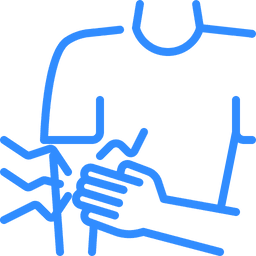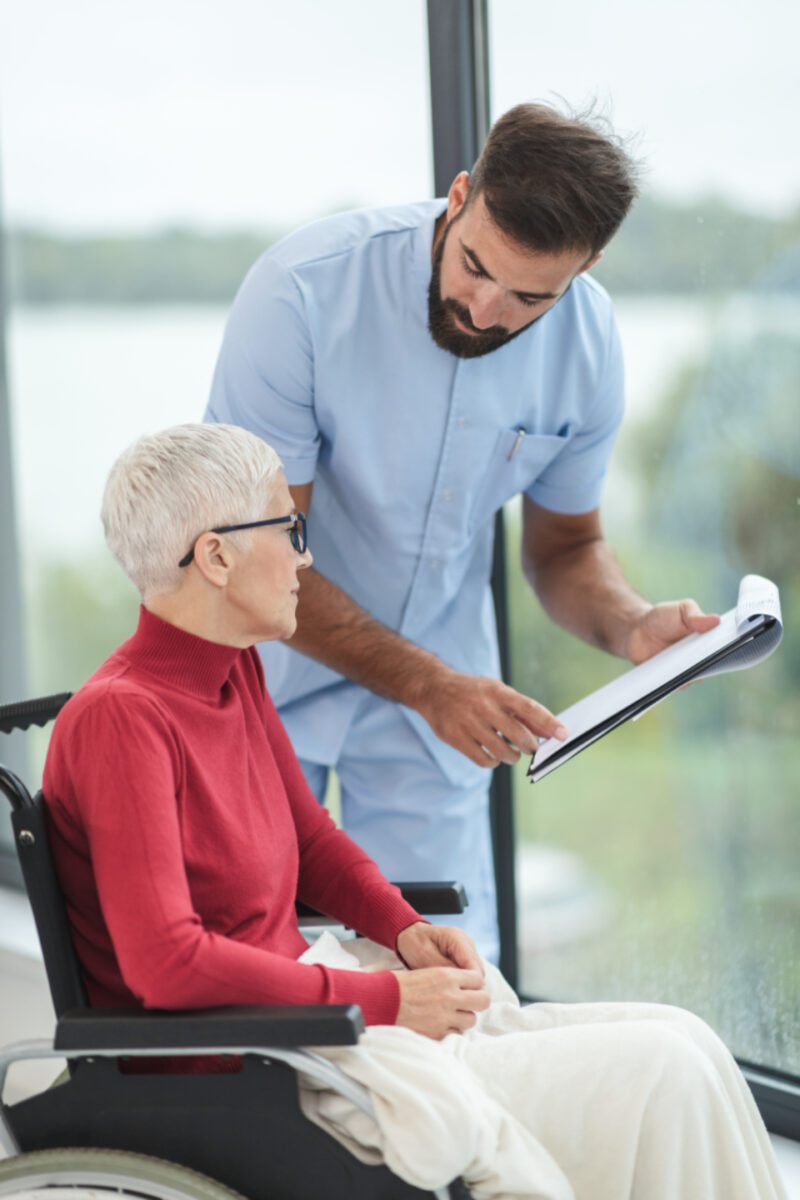Home Health Aide
The Many Jobs of Home Health Aides
When a patient receives health care at home, most of the day-to-day care is delivered by family members. They cook for and feed the patient, help her bathe and get dressed, trim her nails, clean her sheets, and many, many other tasks too numerous to list. But it’s the rare family who can devote someone to the full-time care of an unwell loved one. People have jobs to do, errands to run, and children to look after; they have their own stressful lives to lead and lack the time, finances, ability, or mental fortitude to look after somebody recovering from an illness. Home health organizations like UCLAHHC know this, so we send our compassionate and capable home health aides to assist in caring for patients.
Our aides are dedicated to the personal care of their patients. They perform a wide variety of tasks that patients might need help with:
Providing bathroom assistance
Dressing
Changing bedding
Supporting the patient when walking or moving from bed to chair
Shifting bed-bound patients to inhibit pressure ulcers
Preparing food and helping the patient eat and drink

Rubbing sore muscles
Helping the patient perform exercises recommended by the physical or occupational therapists
Grooming, washing, combing hair, brushing teeth
Picking up to minimize tripping hazards and impediments to movement
Performing simple medical tasks, such as checking vital signs and changing wound dressings
All these tasks that able-bodied folk take for granted are crucial to a person’s health: letting hygiene or healthy food habits slip can only negatively impact a patient’s health. If she cannot do those tasks for herself, then she must receive assistance.
It is easy to see how family caregivers can be overwhelmed by the mountain of work needed to look after an ailing family member. Thankfully, our aides are ready to help with gentleness and compassion, relieving overwhelmed family caregivers and giving the patient a much-needed companion beyond the family circle.
Helping Our Nurses
Our nurses and aides work closely together and sometimes overlap in their duties and habits. Both provide plenty of hands-on care for patients, both check vital signs, and both are responsible for looking after patients with compassion and dedication. But skilled nursing is a highly trained medical profession with much greater responsibilities. Nurses liaise with doctors to create health care plans, organize the health care team, give injections and administer IVs, and provide medical advice. All these require special training that HHAs do not have. They cannot legally give injections or perform other delicate medical tasks, and they cannot give medical advice (beyond reminders for the patient to take her medicine and do her exercises).
Our aides work under the supervision of the nurses. They will often visit patients together, where the nurse can make recommendations to the aide to improve the care he provides, and he can ask questions or voice concerns about that patient’s status. But their relationship is not like you’d expect for boss–employee coworkers, as they both know they’re working together to provide excellent care.
The First Line of Defense
Most of the time, however, home health aides come alone to patients’ houses. They are the most frequent visitors to patients’ homes, often visiting several times a week. Because of this, they often form strong bonds with patients, and his coming is a cause for joy for many patients and their families. That dose of cheerfulness can be just as beneficial for the patient as the care he provides.
Due to the frequency of visitation and the close bonds that form between patients and aides, they sometimes notice changes in the patient’s condition before any other member of the home health care team can. A change in the patient’s personality, a sudden slurring of speech, a loss of appetite, an unexpected wound: the aide will likely be the first to notice on one of his frequent visits. He will diligently tell his concerns to the nurse, who will bring her medical expertise to bear as she investigates the matter on her next visit.
Assisting Therapists
While recovering from an illness or injury, most home health patients will receive advice from physical therapists. This advice will include an exercise regimen designed to strengthen the patient and support her recovery, but unless the patient is sufficiently independent to perform her exercises on her own, she will need help to go through the motions of her exercises.
Our therapists are very busy and cannot always be there to help a patient perform her exercises. However, each of our patient’s health aides easily fills the role of physical therapy aide. He will help the patient go through her stretches and exercises, and may rub sore muscles to ease pain. And he will closely follow the therapist’s recommendations in the health care plan and will report the patient’s progress to the nurse and assigned therapists.
Patients who struggle with swallowing are assigned a speech therapist, who can help with swallowing difficulties. After evaluating the patient, the speech therapist will make recommendations in the health care plan for how the patient can eat and drink with a minimum of difficulty, along with any exercises that might strengthen the muscles of the throat and mouth. During mealtime, the aide will help the patient follow the recommended speech therapy by helping the patient find the posture in which it is easiest to eat and swallow.
The Most Welcome Visitor
We have many dedicated aides working at UCLAHHC, and they each keep up a busy workload. That said, it is not uncommon for a family to request a particular aide to come as often as possible, just because he and the patient get along so famously. We’re only too happy to oblige. Opportunities to socialize beyond family are hard to come by for home-bound patients, and we at UCLAHHC know that having a friend to talk to can but just as important as receiving quality medical care. We’re always happy to hear about how one of our aides has made such a positive impact in a patient’s life, and the hassle of rearranging schedules is no problem at all if it means we can provide better care for our patients.

